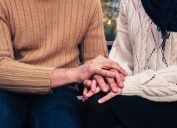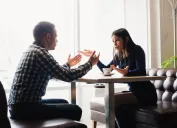I Became a Widow at 40. Here's What Everyone Can Learn from My Experience.
I made the decision no spouse wants to make, but I lived to tell.
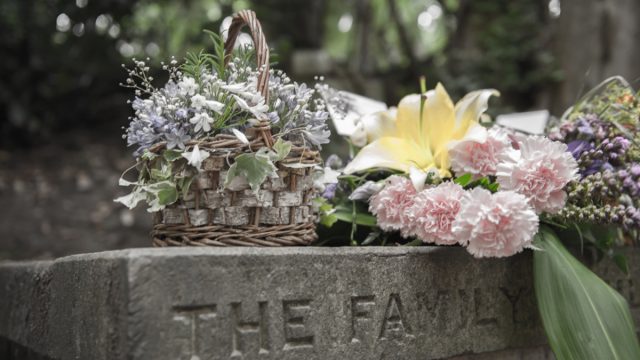
August 2 would have been my husband Michael's 69th birthday. Instead, it's now the 20th birthday we haven't spent together.
On December 21, 1998, I had to make a decision that no spouse wants to make. Michael, who had hepatitis C, had been merely existing in the ICU at Thomas Jefferson University Hospital in Philadelphia for five and a half weeks prior to that fateful day, attached to wires that did his breathing and heart-pumping for him.
For that month and a half, I lived there with him, curled up on the waiting room loveseat or in the chair in his room, eating hospital cafeteria food, venturing out when loving family and friends insisted, attempting to pray him into wellness or, at the very least, petition the Powers That Be for a liver to replace the one he had that was devastated from cirrhosis.
I did what I referred to as "God wrestling." "He's mine and you can't have him," I said, to which the loving but firm response was, "He's mine and he's on loan to you like everyone else in your life." I had no choice but to acquiesce.
So, at 11:40 a.m., the young medical resident who had taken care of my husband turned off life support. She had prepared me the night before, saying that a transplant would not happen since, even if a liver miraculously became available, Michael was too ill to survive the surgery.
I was emotionally numb, physically exhausted, and sleep-deprived. For weeks prior, I would look in the mirror in the family waiting room bathroom each morning and ask, "Is this the face of a woman about to lose her husband?" Every day, the answer was "no." That morning, reluctantly, it was "yes."
Our family gathered around Michael's bed, including our then-11-year-old son, Adam. "Okay, mommy, it's time," he said.
Contrary to what you might see on a medical TV show or in the movies, they turn the sound off first, so you don't hear the mournful whine heralding the departure of your loved one when they flatline. Within moments, Michael's heart stopped its rhythm and the blue eyes that had gazed into mine for more than a dozen years closed for the last time.

I remember my first thought was one of relief that he would no longer be suffering in his worn-out body and that I would no longer be suffering either—watching, waiting, worrying, and wondering if he would survive (and if so, what would his post-transplant life look like?).
I had been doing that for six years, ever since Michael received his initial diagnosis. We had volunteered to become bone marrow donors for a child in our community who had leukemia. We went to the Red Cross to be tested to see if either of us was a match. When we got the results, Michael tested positive for hepatitis C, which the doctor determined he likely got when he was on an ambulance squad in the 1970s. It's a blood-borne disease, and back then, they didn't use the precautions they do now.
We were told by a naturopathic doctor friend that the condition was like rust that wears away at the structure of a bridge. It is slow, but eventually, it breaks through. In the years that followed, we learned that explanation couldn't have been more accurate.
After both mainstream medical and holistic treatments, it became apparent that Michael needed a new liver. He was asymptomatic until he began taking a harsh medication that led to every side effect of chemotherapy except hair loss. Nausea, poor appetite, mood swings, erratic sleep, and neuropathy were all frequent companions. And as his liver failed, the ammonia levels built up in his brain, leading to confusion, trouble with words, and memory lapses, much like what you'd see in someone with dementia. My previously robust six-foot-tall husband was also losing his balance and experiencing agonizing pain.
The medication did nothing to quell the disease, so, after two rounds of it, about three years after the diagnosis, Michael went on the UNOS (United Organ of Network Sharing) list and the waiting game began. He had such mixed emotions about the possibilities, since he said that he knew someone else would have to die in order for him to live. He was fearful of the outcome either way.
As time went on, Michael's condition continued to deteriorate. There were frequent hospital admissions after he developed ascites, which is fluid build-up in the abdomen. At some points, he looked as if he was in the third trimester of pregnancy. I used to joke that he should have been accumulating frequent flyer miles each time we passed through the ER doors.
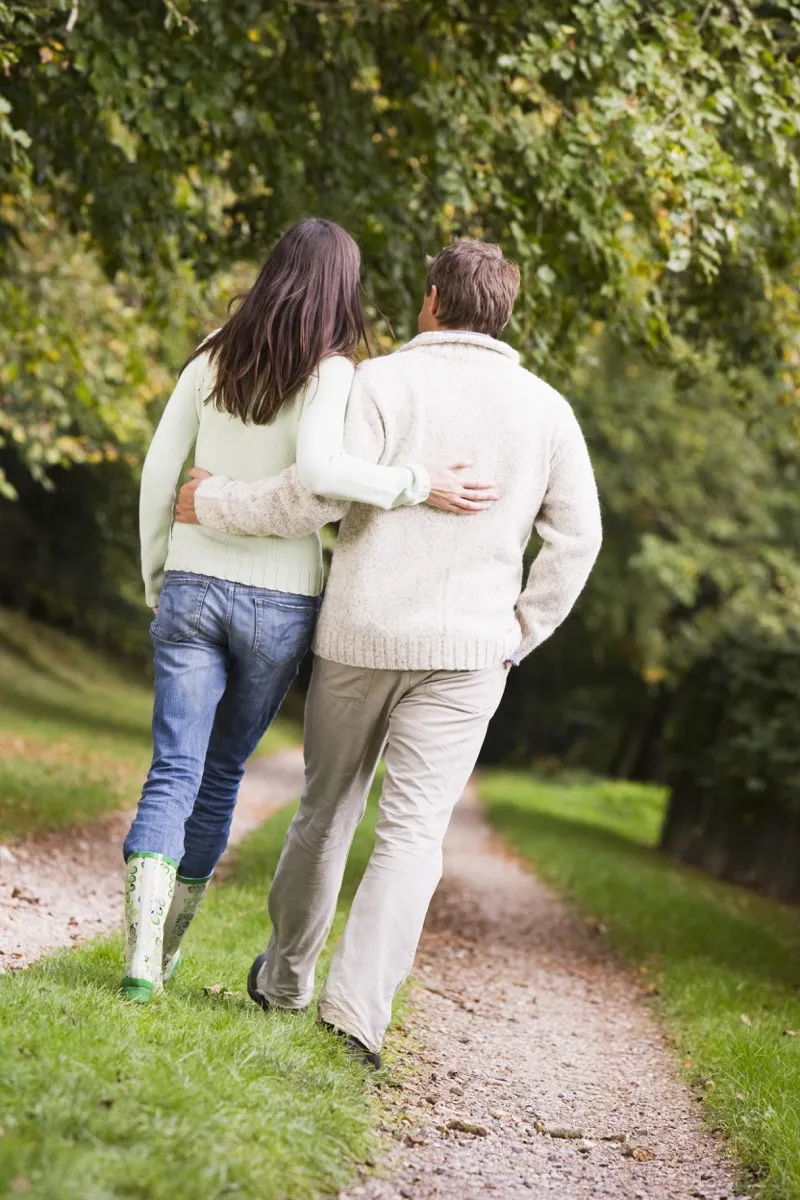
Through it all—along with home care nurses who came and went—I became his hands-on caregiver. There were times when he required bathing, dressing, and, on occasion, when he lost control of bodily functions, I would change him. I made sure that we had an additional set of clothes and body wipes in the car. I'd massage him and walk him around the living room to get temporary relief from the pain, sometimes needing to drape his arm around my much shorter 5'4" frame as we did this bizarre step-and-drag walk until the torture subsided.
Needless to say, when the end arrived, my life was dramatically altered. I was no longer a caregiver or wife. Instead, there was a new "W" word to describe who I was to the world: a widow.
Never could I have conceived that within a few months of turning 40, I would be saying the Jewish mourner's prayer for my 48-year-old husband and raising my son as a single parent. I quickly learned that I could not do it alone. I needed the village that consisted of family and friends to help me raise Adam, who is now 32 and happily married to the love of his life.
It was impossible for me to be both mother and father, so I tapped a few platonic male friends to be his go-to guys. Ken was Adam's action movie buddy; David was his outdoor adventure companion; Richard taught him carpentry; and the most important of all was Phil, who volunteered to be Adam's "unofficial Big Brother." We had been on the waiting list for three years with the official Big Brothers Big Sisters of America organization itself and no one stepped up to be with Adam, so Phil enthusiastically took on that role—even though he was also chronically ill with a congenital cardiac condition that had him being admitted to the hospital frequently. (Phil didn't know it at the time, but Adam was going to lose yet another father. A week prior to Adam's wedding, at which Phil and I planned to walk him down the aisle, Phil too had to be taken off life support.)
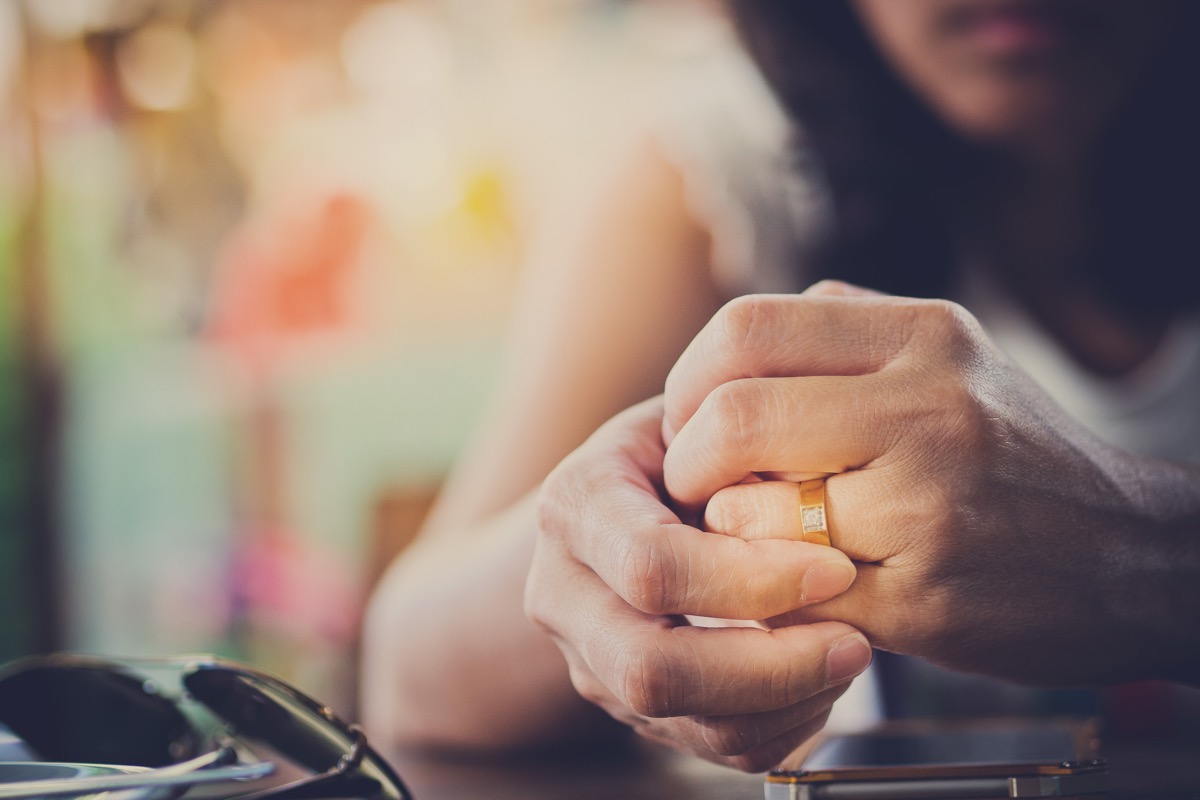
In the wake of Michael's death, I took a month off of work and then returned to my job as a nursing home social worker. But I also enrolled in seminary to become an interfaith minister. Michael had been in the program himself preparing for ordination, and when the machines turned off on that December day, I heard what I call "The Voice" say, "Call the seminary and ask to finish what Michael started." So I did. A few months later, I walked down the aisle of the Cathedral of St. John the Divine in New York City and added the title of Reverend to my name.
Through it all, I gave myself time to heal by laughing and crying, sometimes in equal measure.
I tapped in to the wisdom of others who had walked the same path, asking widow-to-widow questions like, "How long after the death of a spouse can I expect to be ready to take that leap into getting to know someone else?" "When is it appropriate to take off my rings?" "How can I navigate the waters of taking myself out to dinner or a movie when I'm so accustomed to doing those things with Michael?" The answers, of course, were different for everyone.
Eventually, I got used to going places alone and to treating myself to nurturing experiences like pedicures, which I had never had before. I entered back into the dating world five years after Michael passed and am a solo act at the moment, after short-term relationships and lovers. But ultimately, nearly two decades later, I take pleasure in knowing that I am more than a widow and more than a survivor—I am a resilient thriver.
And for more first-person stories about surviving life's biggest challenges, find out What Life Is Like After a Cancer Diagnosis.
To discover more amazing secrets about living your best life, click here to follow us on Instagram!
